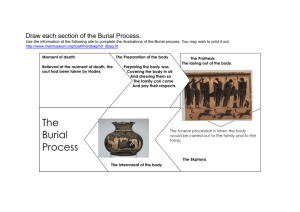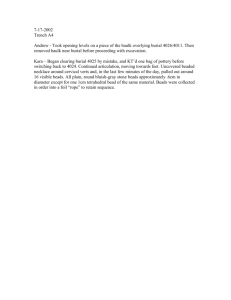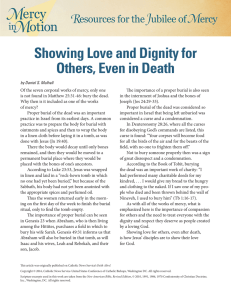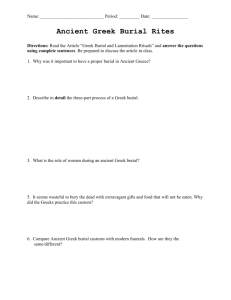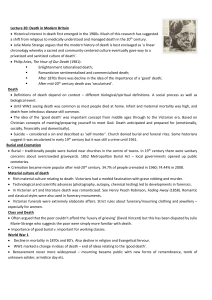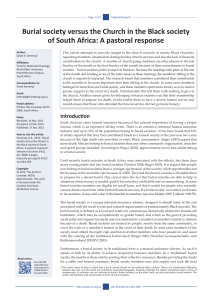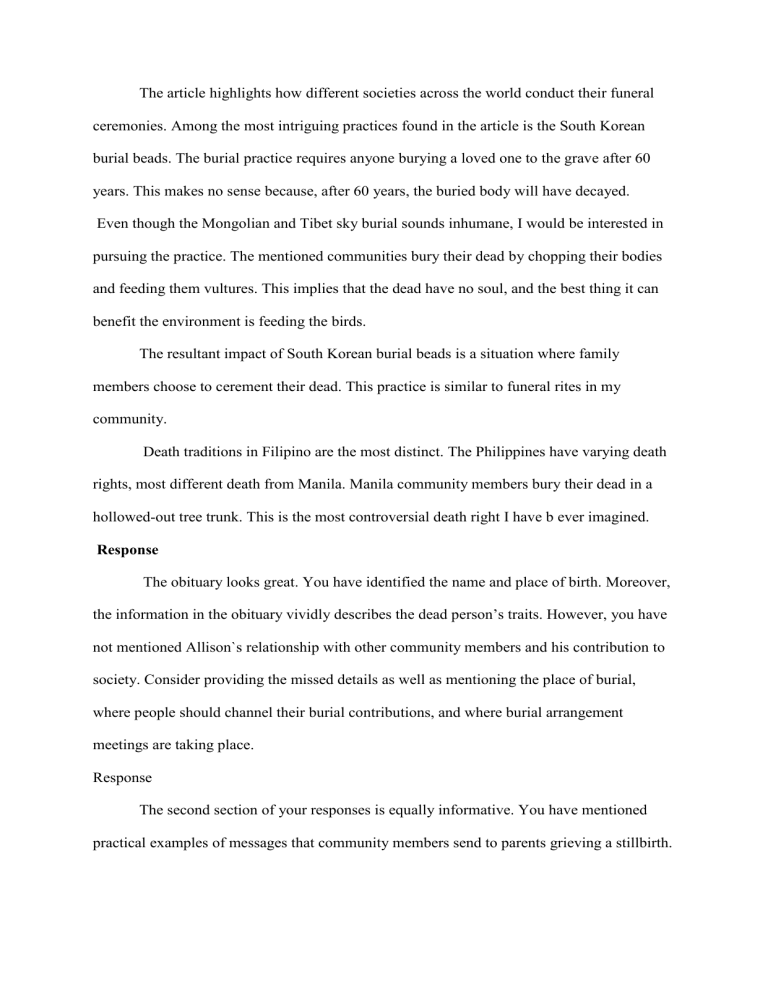
The article highlights how different societies across the world conduct their funeral ceremonies. Among the most intriguing practices found in the article is the South Korean burial beads. The burial practice requires anyone burying a loved one to the grave after 60 years. This makes no sense because, after 60 years, the buried body will have decayed. Even though the Mongolian and Tibet sky burial sounds inhumane, I would be interested in pursuing the practice. The mentioned communities bury their dead by chopping their bodies and feeding them vultures. This implies that the dead have no soul, and the best thing it can benefit the environment is feeding the birds. The resultant impact of South Korean burial beads is a situation where family members choose to cerement their dead. This practice is similar to funeral rites in my community. Death traditions in Filipino are the most distinct. The Philippines have varying death rights, most different death from Manila. Manila community members bury their dead in a hollowed-out tree trunk. This is the most controversial death right I have b ever imagined. Response The obituary looks great. You have identified the name and place of birth. Moreover, the information in the obituary vividly describes the dead person’s traits. However, you have not mentioned Allison`s relationship with other community members and his contribution to society. Consider providing the missed details as well as mentioning the place of burial, where people should channel their burial contributions, and where burial arrangement meetings are taking place. Response The second section of your responses is equally informative. You have mentioned practical examples of messages that community members send to parents grieving a stillbirth. Together with the examples provided, consider adding notes such as I know what you are going through, everything happens with a reason, and it was for the best of God`s actions.
